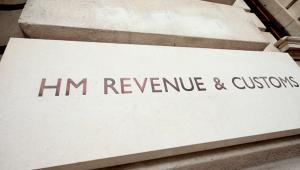Erroneous and fraudulent overpayments increased to 5.7% of tax credits spending (£1.46bn) which exceeded the department’s target of 5% in 2017-18, according to a report by the National Audit Office.
The most recent estimates of fraud and error apply to 2017-18 but HMRC also expects to see higher levels of fraud and error in 2018-19, according to the NAO.
This because 270 full-time equivalent staff were moved from fraud and error workstreams onto EU exit ones, reducing its capacity.
This has meant the auditor general, Gareth Davies, has qualified his opinion, signifying weaknesses in HMRC’s 2018-19 accounts.
HMRC noted an increase in the number of self assessment tax returns which are more costly for the department to collect tax from.
The number of self assessments has been rising steadily from 9.8 million in 2010-11 to 11.5 million in 2017-18 and HMRC believes this is due to a higher number of self-employed workers, more individuals with property income and more people earning over £100,000.
Collecting £1 of income tax through self assessment is over four times higher than through the PAYE system, the watchdog noted.
However, HMRC did report an increase in tax revenue of £22.1bn on 2017-18, rising to £627.9bn.
Gareth Davies, the comptroller and auditor general, said today: “No tax collection system can ensure that everyone meets their obligations, but HMRC can do more to get a clearer picture of the causes of fraud and error in tax credits, the increase in self assessment tax returns and what these mean to its costs and plans going forward.
“HMRC will need to do this against a challenging backdrop of preparing for the UK’s exit from the EU.”
An HMRC spokesperson said: “HMRC works hard to tackle tax credits error and fraud by carrying out checks on claims and helping our customers understand the rules. This ensures people claim what they are entitled to, keeping error and fraud as low as possible.”
The NAO recently found record levels of fraud and error in the Department for Work and Pensions’ accounts due to universal credit.










